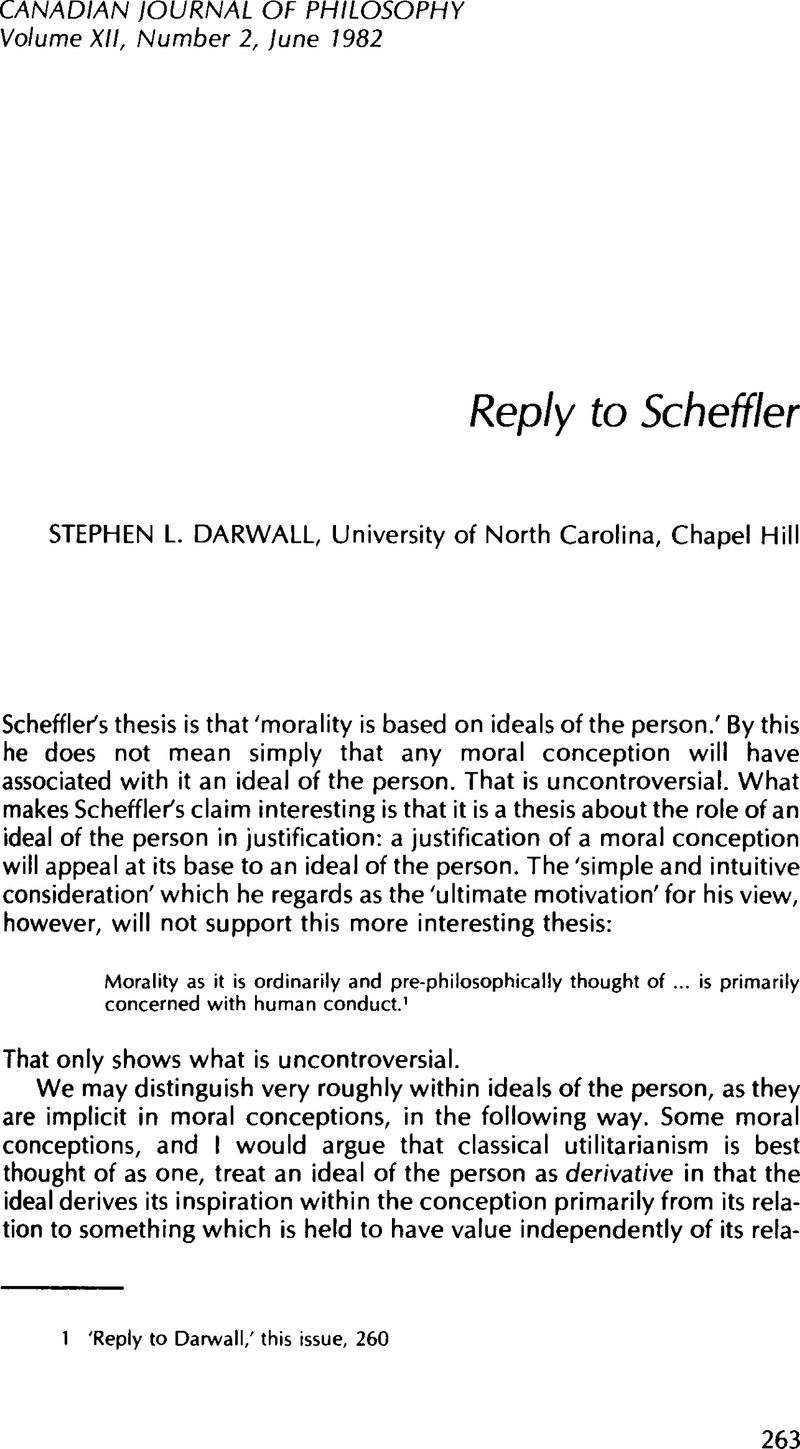No CrossRef data available.
Article contents
Reply to Scheffler
Published online by Cambridge University Press: 01 January 2020
Abstract

- Type
- Reply
- Information
- Copyright
- Copyright © The Authors 1982
References
1 ‘Reply to Darwall,’ this issue, 260
2 There are at least two ways in which an ideal may be both derivative in the sense indicated and also be concerned with matters of agency (as in the sort of ideal discussed below). Most obviously, a moral conception may be a mixed one: focusing both on the bringing about of states of affairs which have value independent of their relation to human agency and on agency-regarding excellences. But there may be more subtle connections as well. For example, though a benefit conferred may often have value regardless of how it is brought about by human agency, there are significant instances where the benefit itself consists at least partly in the recipient's beliefs about its relation to agency. Thus, the value of a gift consists not Just in the object received, but also in its being given in expression of sentiment. In this sort of case the value of the resulting state of affairs has an intrinsic relation to the way in which it was brought about.


